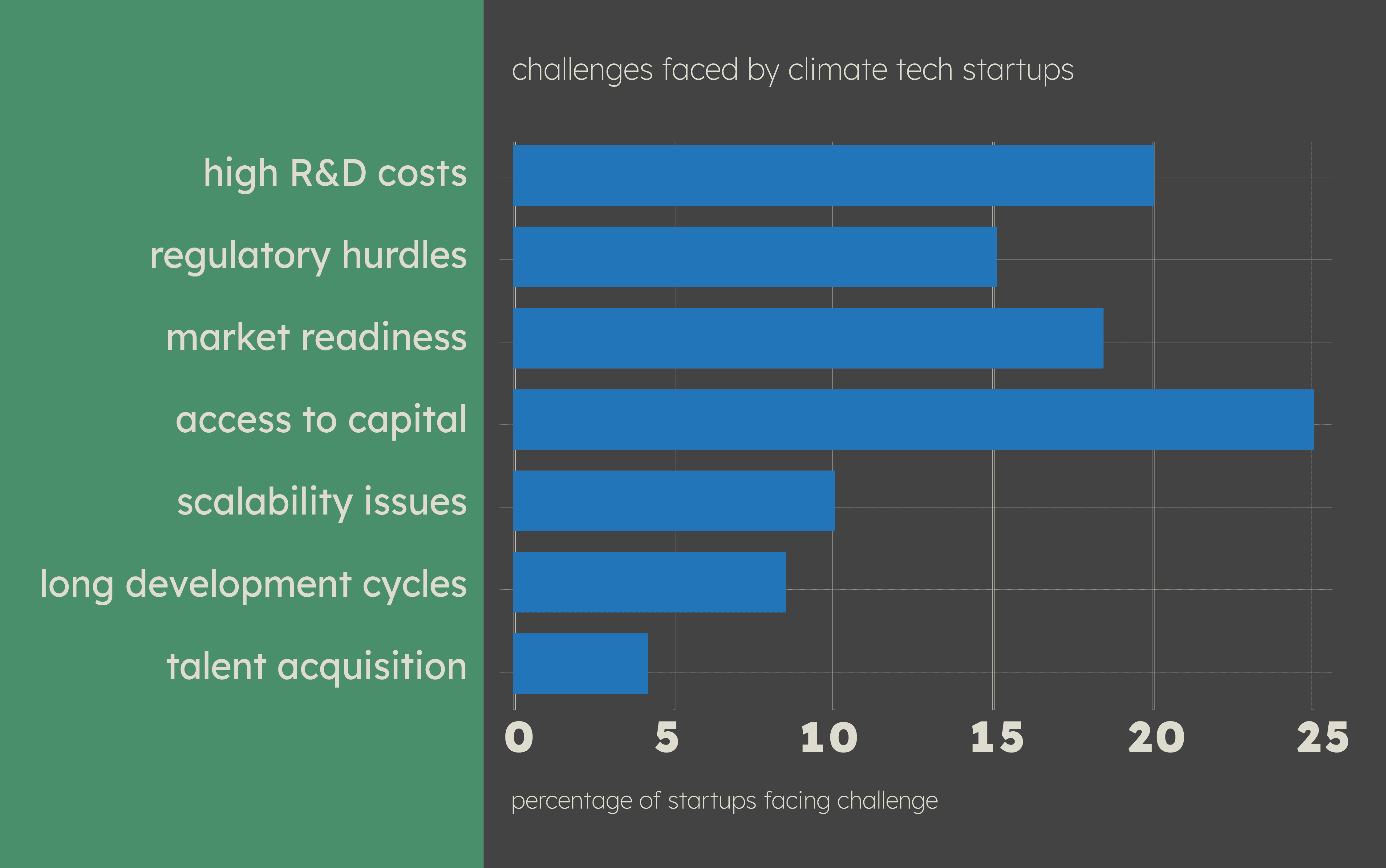Climate Tech: Startups innovation for a sustainable future
Aug 14, 2024

As the world grasps the ongoing climate crisis, a new wave of startups is emerging in the field of Climate Tech. These startups are focused on developing technologies that help mitigate the impacts of climate change and build a more sustainable future. In this week’s article, we look into the rapidly growing Climate Tech industry, exploring its importance, the challenges it faces, and the opportunities it presents for startups and investors alike.
The Rise of Climate Tech
Climate Tech is a broad and evolving sector that includes renewable energy, carbon capture, sustainable agriculture, energy efficiency, and more. The urgency to address climate change has spurred significant investment and innovation in this space. According to recent data, global investments in Climate Tech have surged, reaching over $70 billion in 2023, a substantial increase from just $28 billion in 2020. This rapid growth highlights the increasing recognition of the importance of developing technologies that can reduce carbon emissions and help industries adapt to a changing climate.
Key Areas of Climate Tech Innovation
Renewable Energy: Solar, wind, and hydropower, are at the forefront of the Climate Tech revolution. As the cost of renewable energy continues to decline, these technologies are becoming more accessible and scalable, making them a key component of the global transition to a low-carbon economy.
Energy Efficiency: Innovations in energy efficiency are critical for reducing the overall demand for energy and lowering carbon emissions. This includes advancements in smart grids, energy-efficient appliances, and building technologies that minimize energy waste.
Carbon Capture and Storage (CCS): CCS technologies aim to capture carbon dioxide emissions from industrial processes and store them underground or use them in other applications. While still in the early stages, CCS has the potential to play a significant role in achieving net-zero emissions.
Sustainable Agriculture: Agriculture is both a contributor to and a victim of climate change. Innovations in sustainable agriculture, such as precision farming, vertical farming, and climate-resilient crops, are essential for reducing the sector’s carbon footprint and ensuring food security in a warming world.
Circular Economy: The circular economy concept involves designing products and systems that minimize waste and make the most of resources. Climate Tech innovations in this area include recycling technologies, sustainable packaging, and waste-to-energy solutions.
Challenges Facing Climate Tech Startups
While the Climate Tech sector is growing rapidly, startups in this space face several unique challenges. One of the biggest hurdles is the need for significant upfront capital to develop and scale technologies. Additionally, regulatory uncertainty, particularly around carbon pricing and environmental standards, can make it difficult for startups to plan and execute long-term strategies. Climate Tech startups often operate in industries that are traditionally slow to change, such as energy and agriculture, which can make market penetration challenging.

The Role of Investors in Scaling Climate Tech
Investors are at the heart when it comes to scaling Climate Tech startups. Venture capital and private equity firms are increasingly recognizing the potential for high returns in this sector, particularly as governments around the world introduce more stringent climate policies. Impact investors, who seek both financial returns and positive environmental outcomes, are also becoming more active in the Climate Tech space. By providing the necessary capital and support, investors can help startups overcome the challenges they face and bring their technologies to market.
Opportunities for Startups in the MENA Region
The MENA region presents unique opportunities for Climate Tech startups, particularly in areas such as solar energy, water management, and sustainable agriculture. With its abundant sunlight, the region is ideally suited for large-scale solar power projects. Additionally, the growing recognition of the need for sustainable water use in this arid region is driving innovation in water-saving technologies. Startups that can develop solutions tailored to the specific needs of the MENA region stand to benefit from a rapidly growing market.
The future of Climate Tech is bright, with the potential to drive significant positive change in the fight against climate change. However, realizing this potential will require continued innovation, investment, and collaboration across sectors. At Parachute16, we are committed to supporting startups in the Climate Tech space by providing the resources, mentorship, and networks they need to succeed. As the Climate Tech industry continues to grow, we look forward to being a part of the journey toward a more sustainable and resilient future.